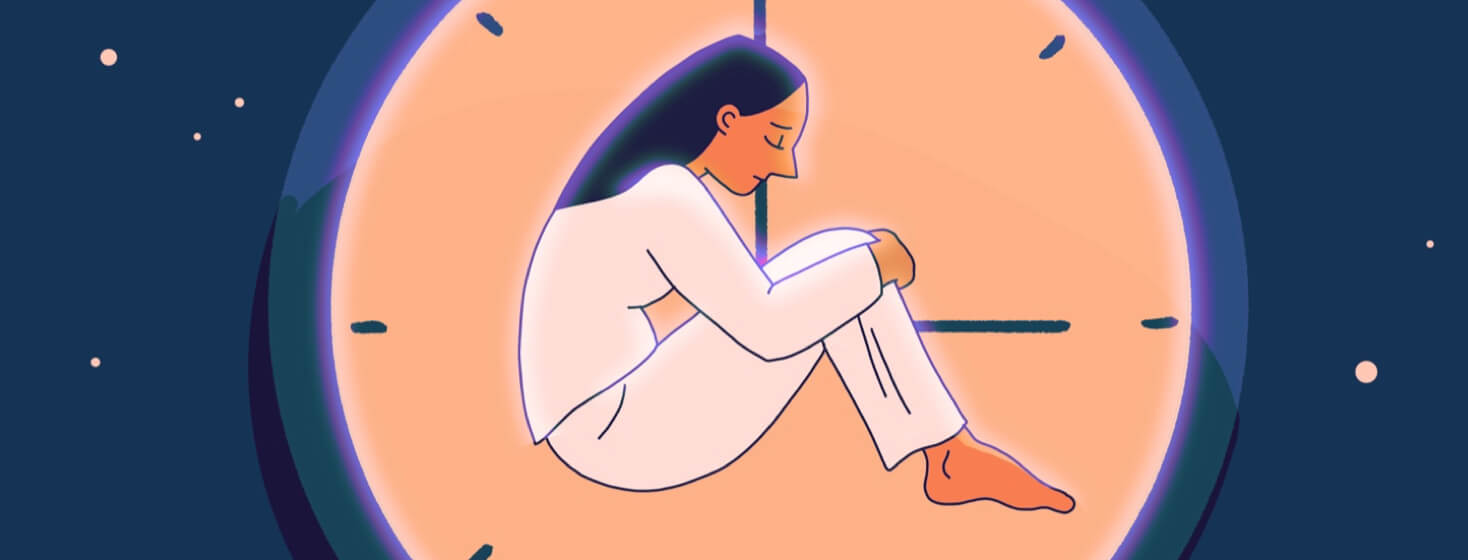Anxiety and Insomnia
In my experience, anxiety and insomnia have always gone hand in hand. Where there was one, the other was bound to be lurking in the shadows as well. So whenever I struggle with anxiety or insomnia, I know that it will affect the other.
Anxiety and me
To put it simply, I am an anxious person. Always have been. However, it has gotten worse in the past couple of years, which has also made my insomnia worse.
When I have trouble sleeping, I start feeling anxious about how this will affect me in the morning. I fixate on how it will impact my day and everything I need to do. And I can’t stop thinking about how after finally falling asleep, I might accidentally end up sleeping in. All of these thoughts, combined with general anxiety about everyday tasks and responsibilities, make falling asleep even harder.
The cycle of anxiety and sleeplessness
I get so anxious about how my lack of sleep will affect tomorrow that I end up losing sleep over it. It seems silly, but that’s the reality of insomnia for me.
There have been countless instances where I’ve opted to pull all-nighters to make sure I can complete certain things in the morning. I’ve done this because I know that I will have trouble sleeping the night before. I also know that once I inevitably fall asleep, I will have a lot of trouble getting up early due to tiredness and lack of sleep.
Because I have slept through a lot of things in the past due to sleeping troubles the night before, the cycle of anxiety and sleeplessness continues.
Mindfulness and meditation help – sometimes
Other times, I try my hardest to sleep and am unable to sleep all night. Whether I intentionally pull an all-nighter or my anxiety prevents me from getting any sleep, I do not get enough sleep most nights.
To try and reduce my anxiety, in hopes of increasing my chances of better sleep, I try to practice mindfulness and meditation. I try to incorporate these throughout the day to keep my overall anxiety levels lower, but I make sure to do some breathing exercises while in bed.
Sometimes, mindfulness and meditation will help. But more often than not, it does not help me sleep any better. This makes me feel very hopeless, and that adds to the anxiety and sleeplessness.
The role of the pandemic
It is also difficult to reduce anxiety during the pandemic. I have found that my insomnia was getting worse shortly after the start of the pandemic in 2020 and it has only gotten worse since then. The fear and uncertainty about the virus and its variants, constantly changing government regulations, personal and collective burnout, along with unvaccinated folks and conspiracy theories, make it difficult to remain calm and relaxed.
It has been almost 2 years of the pandemic, and my anxiety and subsequent insomnia have become really big issues in my life.
Maybe once my anxiety is under control, I can sleep better. Or maybe once the pandemic is over, I can get some quality sleep. But until then, I am receiving treatment for my anxiety and hope that it helps my insomnia as well.

Join the conversation